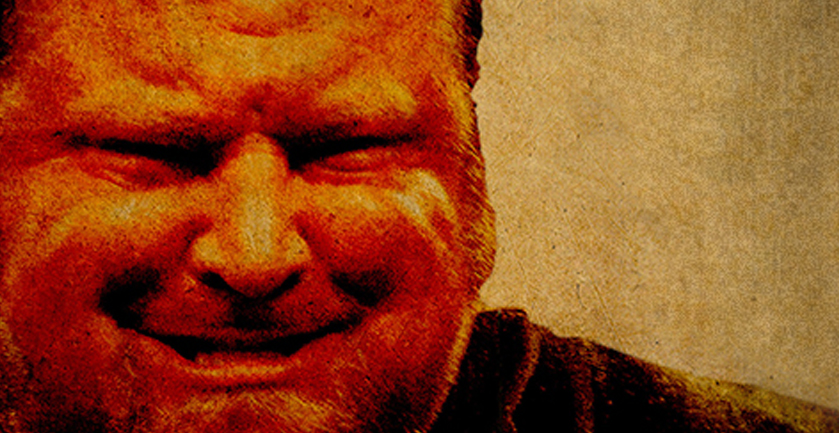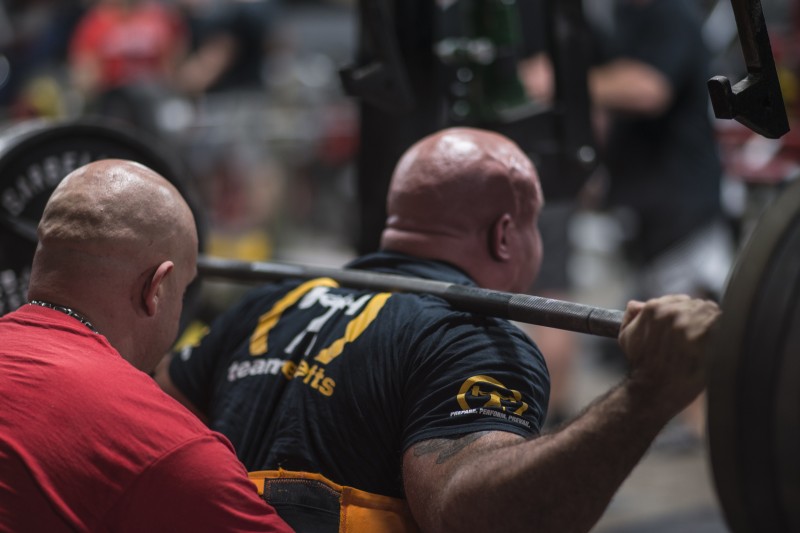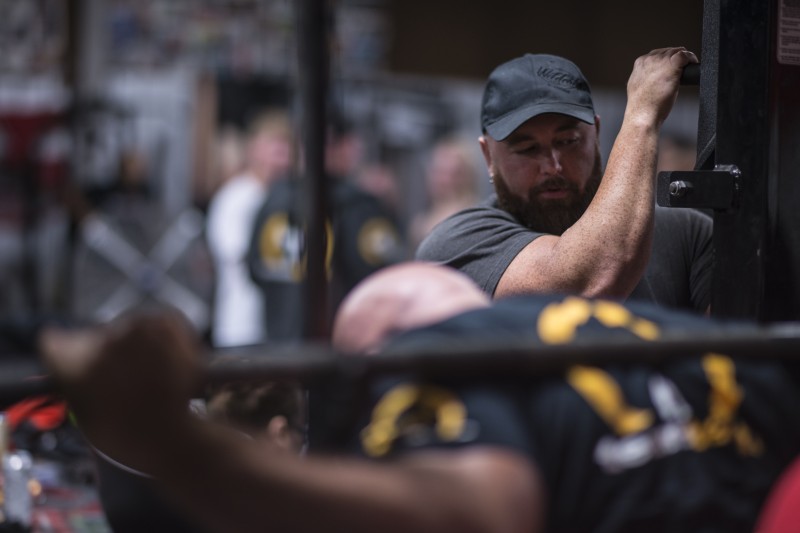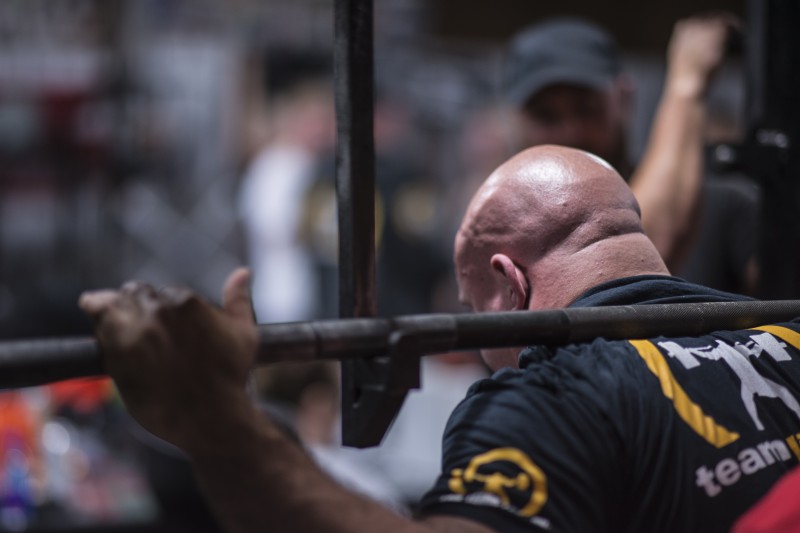
How much of a role does mental strength play in being a successful athlete? From my experience, it plays the biggest role. I say it is right up there with heart as the most important trait, but I also feel mental strength and heart are similar. They feed off and strengthen each other to the point it is hard to tell where one ends and the other begins. I see them as one and the same. Still, this leaves a question: is this a genetic trait? This also raises the question of if it can be strengthened or intensified, and if so how.
I recently had a conversation with a good friend of mine about his son, who is a very promising BMX racer. This friend was a collegiate baseball player and is now doing well racing BMX with his son. We are extremely similar in the fact that we are both very aggressive, intense, and will easily put it all on the line in athletic endeavors. He told me about his frustrations with his son’s lack of killer instinct on the racetrack. Being an amazing father who goes all out for his children and understanding this is a key to his son's success, he wants to help him in this area.
RECENT: The False Prophecy of Motivation and Inspiration
Like most things, I tried to keep my advice simple. I told him not to be frustrated because mental toughness and intensity are just like physical strength: they have to be trained and take time to grow. His son is in his very early teens and his body is still developing physically and mentally. I explained it is important to be patient with this but to keep working on it at the same time. We talked about how they are already working on it and I explained some of the ways I know to train mental toughness. This conversation really gave me a lot to think about.
Is mental strength and toughness a genetic gift like we think physical genetics can be? I am to the point where I just don’t care about genetics anymore. Does it even matter if it is genetic or not? Isn’t the real question if you can teach it or learn it? I do believe people are born with certain gifts. Some people pick up learning, sports, or social interactions easier than others. This is a fact, but so what? I truly believe someone not born with those gifts can still become good or even great at any of those things if they want to.
World-class sports are full of underdog stories and athletes that should never have made it to that level but did. In almost all of these cases, the athletes have a tremendous amount of heart and mental fortitude. This is what drove them to learn and train to achieve that high level of athleticism even though they did not have the genetics for it. Was their heart and mental fortitude genetic, though? There are singers that at one time were so shy they threw up before singing in public, but somehow they became famous and toured for years. Some of the smartest people in the world struggled in school. Mental toughness and strength are no different than physical traits; they can be trained and improved. If you have great genetics physically or mentally, good for you. That's awesome. If you were not gifted with great genetics then it just means you will have to work a bit harder and smarter, but all is not lost.
I believe mental toughness is an instinct instilled within all of us. It is very animalistic and based on survival of the species. In modern society, it rarely gets tested and I think in cases where it does not get tested it does not grow. I know I was not always so mentally tough. As a kid, I had a hard time with a lot of things, but looking back there was one spark. That one thing that let me feel the power in my own mind was fighting. I am not saying I was the best fighter or instinctively knew how to fight, because I did not. What fighting showed me, though, was that I did have mental toughness. I loved fighting because even in the beginning I recognized how I changed. All the sudden my confidence was boosted and I felt no pain at all. In fact, I felt invincible! My body was faster and tougher. Even my mind was faster.
Yes, there are all kinds of physiological reasons for those things, but there was more too. I remember one time in the second grade I got in a fight after school and ended up smashing a kid’s head against a steel fence post until a teacher made me stop. I remember thinking afterward that there must be something wrong with me and I probably needed to figure out how to control it. At the same time, the feeling was unbelievable. I look back now to realize fighting and that feeling I got was the start of my mental toughness. It gave me just a small taste of the strength I had inside me. Learning to control this and to be able to utilize it in sporting endeavors was a very long journey. I have heard so many stories of strength athletes having troubled childhoods and I always think maybe that was their trigger. Even if it was not fighting, maybe that's what showed them how tough they could be. Maybe it gave them the motivation to get strong and to have the fortitude to achieve what they did. Even without them realizing it, it lit the spark of mental toughness. It broke the seal so it could grow stronger.
For centuries people have stumbled onto their own mental toughness. Much like my own story of fighting, if I had been one of those people that never got in a situation to fight, would I be as mentally strong as I am now? If someone doesn’t stumble across that spark, how will they see the power inside them? Can it be taught? I believe it can, but much like strength training, I find what works for people can be very different. As I have said so many times, if there was one strength program that worked for everyone, there would only be one type of program. So to really know what will work best for the individual, you have to know the individual or write a very long complicated book, which still may not cover it all. This is because people change as they grow, and what worked at one time may not work later. Still, there are some very common actions that should help all people.
I think the very first rule, especially with younger athletes, is to always be positive. Always try to set them up for success but understand some filters, which are hopefully controlled, are also needed. Competing itself needs to be trained, and handling failure properly will be necessary. It is about building confidence even in the face of failure, teaching that it is not a failure if you learn. Then take that knowledge to your training. It is about the war, not the battle.
One way of doing this is always testing in training. In the case of my friend, it could be timing runs in practice, especially at the end of hard practices or tough days. A major key to this is building up mental imagery. Get them to imagine being at an actual race and pitting them against their biggest adversary. In lifting, I often did this in the gym training, and when I was throwing I ended a lot of practices like it was a meet with just three throws to hit a distance. Of course, the times and distance do not have to be PRs but can be adjusted to the situation. They should always be challenging, though, and never easy.
LISTEN: Peak Mental Performance Podcast — How to Use Visualization
Doing this in training has many advantages. It can allow the coach to see how the athlete reacts to pressure, and even if they do not succeed there is much to be learned. When they do not succeed, it is good to explain it is just training and focus on what was learned or what needs to be worked on. Remember that this is training for success in competition. Even when it is successful, it is important to make the point of what is learned and needs to be worked on. This can help teach them that it is not just about winning and losing but about expecting the very best from themselves. After some celebration, that is. The celebration is important too.
The very biggest thing that I feel helped me learn to really utilize my mental strength in sports was visualization. You have to be able to see it in your mind's eye before you are able to do it. Like most things, this is something that takes hard work and time to get really good at. I started doing this by running throws over in my mind before each throw in training and in competitions. Years later, once I got into powerlifting, I began having separate training sessions of just visualization. I think it is good to start with five or 10 minutes and work up to a half hour or more. I would go into my room, shut off all the lights, and set the timer. I would then run through a full meet in my head. I would start by going through the lifts as I was doing them, seeing through my own eyes at first. Then I would go through them as if I was watching myself perform the lifts.

Once you get really good at this you will find it can actually make you physically tired. You will induce physical symptoms of an elevated heart rate, heavy breathing, release of adrenaline, etc. The goal is not to be moving physically but to feel it in your mind. It becomes a kind of out of body experience where you do feel as though you are physically doing the movement while sitting still. Remember, this is not just about seeing the lift being successfully done. It is about performing with perfect technique.
It is also about seeing yourself in control the whole meet. I would even visualize my stretching and just be completely calm before the lifts. Every aspect of competing needs to be involved. This includes the feeling of a successful lift and winning the meet. I believe visualization can and should be practiced all the time. We all have random points throughout the day where we could take a few minutes to run through one action in our heads. While warming up, we could be visualizing the training and how we want it to go that day. Visualizing and being successful in the mind's eye will build confidence. It will also work to help build stronger CNS patterns of proper technique (if proper technique is understood).
Another way to build a stronger mental toughness is through self-affirmations. I know this is kind of silly and there has been lots of fun made of it, but it does work. I am not so much into the stuff like "I love myself and people love me." Blah, blah, blah. I am more into reminding yourself of your goals and how you will achieve them. I believe in telling people with confidence what your goals are. Do not say, "I am going to try this in my next meet." Say, "I am going to achieve these numbers at my next meet." I believe in writing yourself notes about these things and placing them throughout your house, car, and locker. I am a very big fan of daydreaming (visualization) about achieving your goals. The whole key to this is believing in what you are saying, not just acting like it. You have to feel it and know it in your heart. It is not about grandiose dreams but about realistic and challenging ones.
What genetics mean to me is that some things come easier to some people. It does not have anything to do with success or achieving goals. Physical and mental strength or toughness can be achieved, even without so-called genetics. It all comes down to you and if you’re willing to put in the work. It all starts with mentality or mental fortitude, which we all have somewhere deep down in our DNA. For some, this comes easy, and for others, we have to work at it. So there's only one question left: are you willing to work for it?













Keep up this shit long enough in enough venues and you end up with Wade Belak.
It isn’t a strength coach’s job to berate students, or even readers, for not being mentally tough enough. On a good day it’s wildly irresponsible, not to mention arrogant.
I think you missed my point in this article or I did not make it clear enough. My point is mental strength is in all of us but just like our muscles it needs to be trained. It can be strengthened just like our muscles.
As for browbeating lifters into feeling worse if they deal with anxiety, depression, etc I have no idea where you got this. It is well know the problems I have with sleep and severe depression. In fact one of my goals is to show people they can still achieve great things in strength and elsewhere while dealing with these issues. They do not limit us, there just something we have to figure out how to work around. To say athletic or strength training has a major effect on these type issues so they need to be watched and training needs to be adapted for these them.
I have no need to browbeat anyone down for their level of strength. I only want to help them get stronger and be healthier. To achieve their goals.
Chad